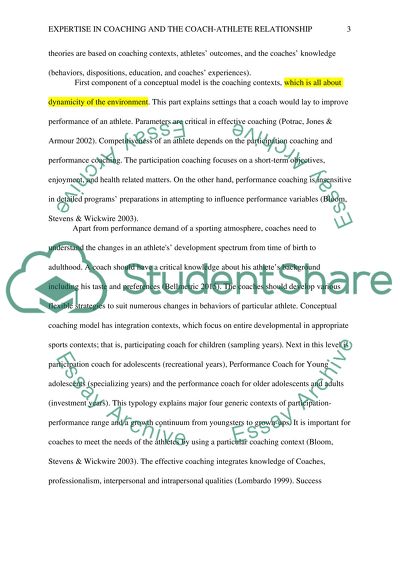Cite this document
(Expertise in Coaching and the Coach-Athlete Relationship Assignment, n.d.)
Expertise in Coaching and the Coach-Athlete Relationship Assignment. Retrieved from https://studentshare.org/education/1693607-advance-coaching-in-sport-topic-expertise
Expertise in Coaching and the Coach-Athlete Relationship Assignment. Retrieved from https://studentshare.org/education/1693607-advance-coaching-in-sport-topic-expertise
(Expertise in Coaching and the Coach-Athlete Relationship Assignment)
Expertise in Coaching and the Coach-Athlete Relationship Assignment. https://studentshare.org/education/1693607-advance-coaching-in-sport-topic-expertise.
Expertise in Coaching and the Coach-Athlete Relationship Assignment. https://studentshare.org/education/1693607-advance-coaching-in-sport-topic-expertise.
“Expertise in Coaching and the Coach-Athlete Relationship Assignment”, n.d. https://studentshare.org/education/1693607-advance-coaching-in-sport-topic-expertise.


